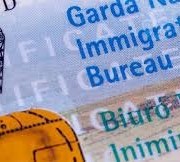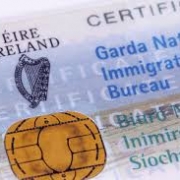RECENT REFUSALS OF EMPLOYMENT PERMIT VISAS
Late last year, Ms Justice Bolger of the High Court delivered a judgement in the case of S v Minister for Justice [2022] IEHC 578, which we discuss in detail in our blog post available here: https://berkeleysolicitors.ie/recent-high-court-judgement-refusal-of-travel-visa-for-employment-permit-holder/
The case concerned an Indian citizen who was granted a work permit to take up a position as a tandoori chef. The Applicant then applied for a visa to enable him enter Ireland to take up this employment position, but his visa application was refused. The Applicant appealed against this refusal; his appeal was also unsuccessful. The Applicant initiated Judicial Review proceedings in the High Court, seeking an order of certiorari to quash the decision. Ms Justice Bolger found for the applicant and granted the order quashing the decision.
We noted in our blog post that this case raises the conflict that can arise when a person has been granted an employment permit and requires an employment visa to enter the State.
The Department of Enterprise, Trade and Employment have responsibility for the issuance of employment permits. When a person who has been granted an employment permit is a national of a country that requires an entry visa to enter Ireland, their application to enter Ireland for the purpose of employment is subjected to a review by the Minister for Justice in their visa application.
The Minister in respect of the Applicant in the S case had found in the refusal decision that the Applicant had not provided sufficient evidence that they had the appropriate skills, knowledge, or experience for the employment position in Ireland. The High Court found that a work permit does not constitute prima facie evidence that the Applicant has the skills and experience required for the proposed employment. However, the Court found that it also cannot simply be ignored.
The Minister for Justice does not limit her assessment of a visa application to immigration matters only and will often undertake an examination of the Applicant’s suitability for the employment position they have been issued an employment permit for. We are now seeing a series of visa refusals which rely on the S case to allow the Visa Officer to re-assess the Applicant’s suitability for the prospective employment. Some refusals purport to state, in the case of roles such as horticultural workers, meat processing operatives, dairy farm assistants, and healthcare assistants, as such roles require no or few qualifications or experience in circumstances where the employer will provide training, that the Visa Officer is entitled, “in the absence of such safeguards” to “thoroughly assess” an applicant’s suitability to perform their duties. We believe that many of these decisions may unlawfully ignore the employer’s duty to provide training in respect of these roles, and that Visa Office may be inferring an additional requirement at visa processing stage to show qualifications and experience in roles where no qualifications or experience are required by the Department of Enterprise.
We further note that these decisions may place an undue reliance on the S case to ignore the Department of Enterprise’s role in assessing a candidate’s suitability for a proposed role. Bolger J. stated at paragraph 37 that: “I do not consider the work permit constitutes the type of prima facie evidence that is contended for by the applicant. However, neither do I accept that it can be ignored.” [emphasis added]. We note that the context to the above quote is that the applicant in that case contended that the Visa Officer “cannot look behind the grant of the permit or require an applicant for a visa to show that they are qualified to do the job for which they were granted that permit.” This would preclude the Visa Offer from having any consideration of the Applicant’s qualifications, skills, or experience in respect of the proposed role. This was not considered to be the case by the High Court. However, importantly, neither can the issuance of the work permit by the Department of Enterprise be ignored in considering an Applicant’s suitability for the proposed role. Therefore, while the issuance of a work permit cannot in and of itself constitute evidence of qualifications and experience or the offer of sufficient training, it is certainly persuasive, and cannot be ignored in the Visa Officer’s consideration of an Applicant’s suitability for the proposed role.
This blog article has been prepared on the basis of current immigration law and policy, which is subject to change. Please keep an eye on our blog and Facebook page where articles relating to updates and changes in immigration law and policy are regularly posted.




